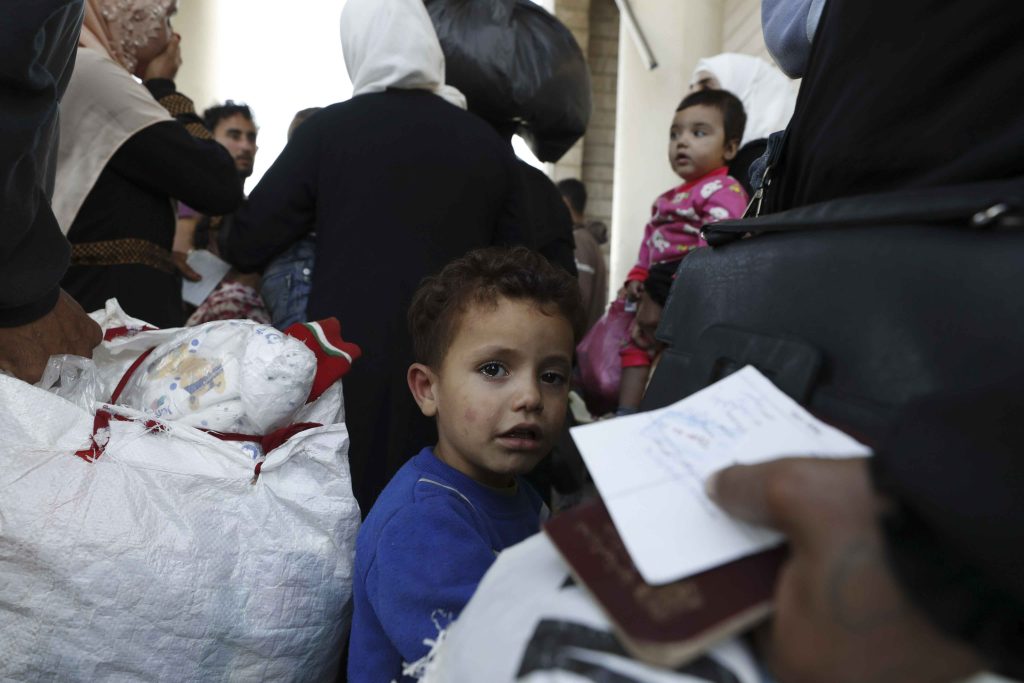FCA expands its operations in the Middle East – first phase of work will help refugees fleeing Lebanon to Syria

FCA is helping refugees fleeing air strikes in Lebanon to Syria by providing shelter, emergency supplies, and psychosocial and mental well-being support. In the coming days, FCA will expand its operations in the Middle East further to help those affected by the escalating crisis.
Finn Church Aid (FCA) is launching a major new aid operation in the Middle East to help civilians living in the midst of fighting and fleeing attacks.
Since September 2024, Israel’s devastating air strikes in Lebanon have caused enormous human suffering and a massive refugee crisis. Many people are also fleeing Lebanon to Syria, where FCA works.
The first phase of FCA’s new operation will assist civilians fleeing Lebanon, a significant number of whom are women and children. FCA has allocated €100,000 from its disaster fund for this work.
“The war that started in Gaza a year ago has now, as feared, spread to the surrounding countries. Amid it all, it is important to remember that all people have the right to protection and humanitarian assistance. FCA has a presence in the region and reliable partners with whom we are helping in this acute crisis,” says Tomi Järvinen, Executive Director of Finn Church Aid.
The situation in Gaza escalated a year ago when Hamas, the Islamic resistance movement that controls the Gaza Strip, carried out terrorist attacks on the Israeli side as part of a long-running conflict. Some 1,200 people were killed in the attacks, and Hamas took 251 hostages. It is estimated that the Israeli state has killed more than 40,000 civilians and injured nearly 100,000 in its response.
Many fleeing violence for the second time
Lebanon’s government estimates that up to one million people in Lebanon have been forced to leave their homes and become refugees. By the beginning of October, more than 100,000 of them had crossed the border into Syria, where the humanitarian situation is already challenging due to a long war and an earthquake last year.
Among those currently fleeing to Syria are both Lebanese and Syrians who have been repeatedly displaced due to the ongoing violence and natural disasters such as the earthquake that hit Syria and Turkey in February 2023. Before the large-scale conflict between Israel and the Lebanese armed group Hezbollah in September, 1.5 million Syrian refugees were living in Lebanon.
FCA’s work in Syria will focus on meeting people’s basic needs. Refugees will be provided with functioning shelters and warmth for the cold winter. Refugees will also receive hygiene products and psychosocial and mental well-being support.
“The escalating conflict in Lebanon has triggered a new humanitarian catastrophe in both Lebanon and Syria. Around 70 per cent of those entering Syria have been women and children. Among those fleeing the conflict are elderly and disabled people”, says Mazen Khzouz, FCA Country Director for Syria.
The number of Lebanese and Syrians arriving in Syria is increasing, but FCA is committed to supporting them by providing emergency assistance, Khzouz says.
“Our efforts will prioritize meeting the immediate humanitarian needs of vulnerable individuals. In the medium and long term, we aim to provide education in emergency programs to displaced school-age children.”
The operation is expanding further
FCA is also launching relief work in Gaza, where the war continues, although the world’s attention is currently on Lebanon. The work will focus on education in emergencies and psychosocial support in the difficult humanitarian situation in Gaza. We will provide more information in the coming days.
FCA has had an office in Syria since 2019, and even before that, FCA had operations in Syria through partners. FCA has had projects in the West Bank and East Jerusalem since 2012. The new humanitarian operation will be built on existing programmes and will respond to the changed situation in the region.
For more information and interview requests, contact Ulriikka Myöhänen (p. +358 50 576 7948, ulriikka.myohanen@kua.fi)